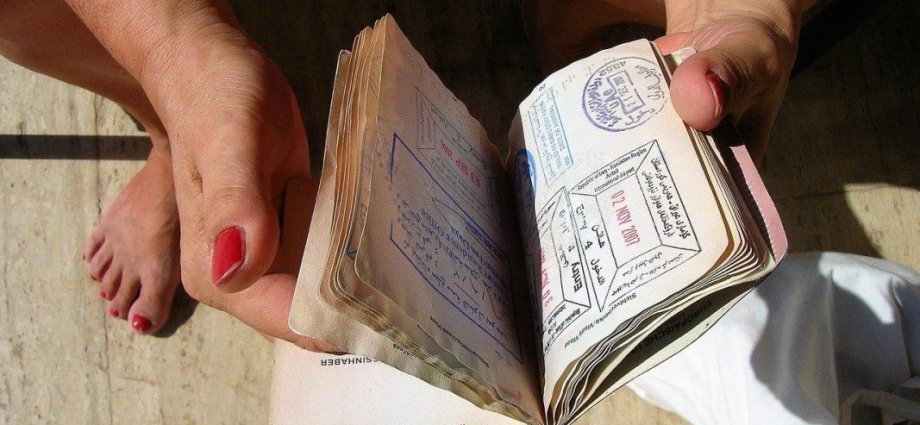The American actor Richard Gere is one among several witnesses scheduled to testify at the high-profile trial of the Italian politician Matteo Salvini, Italy’s former interior minister. Salvini is facing charges of kidnapping after allegedly blocking the humanitarian ship Open Arms carrying 147 migrants from docking at the Sicilian port of Lampedusa in 2019.
He has been accused of holding all passengers hostage as they languished at sea in the Mediterranean summer heat for 19 days. If found guilty, Salvini could face up to 15 years in prison. Gere is expected to tell the court how he came to supply the migrants on the Open Arms with food.
Despite Salvini’s attempts to discredit the trial process, his hearing has just got underway in Palermo, Sicily.
For those of us in the fight to increase the rights of today’s global migrants, Salvini’s trial is a sign of hope. It is a very public instance of state officials being held accountable amid the narratives of alienation that have been inflicted on migrants in the country in the past few years.
Still identifying as a country of emigrants rather than for immigrants, Italy struggles not only to empathise with the lives of people who arrive in search of better opportunities but also to adapt to its contemporary sociodemographic reality. It’s a country that is more and more diverse and its people older and older. Meanwhile, the younger generations are increasingly embracing cosmopolitan ideals.
Citizenship debate
Italy’s citizenship law and the many years of debate about changing it reflect these struggles and the country’s paradoxes. They raise questions about current configurations of being a citizen, and about how they address the rights of the second generation of immigrants and of the children who are born or raised in the country by foreign parents.
Different proposals have been generated along the years to replace the current system of jus sanguinis (recognising the right to citizenship only for children born from Italian citizens). Initially aiming to apply the principle of jus soli (recognising the right to citizenship to all children born on Italian ground), the latest proponents have been pushing for a strategically less radical jus culturae (enabling minors born and raised in Italy who have completed a cycle of study in the country to become citizens).
Along with these proposals, different grassroots solidarity groups in the country have been promoting a different narrative about migrants and changes to citizenship laws. Among the most vocal proponents of them have been second-generation black Italian activists, who have been pushing for citizenship reform for the past decade.
As extensively documented by scholars Camilla Hawthorne and Angelica Pesarini, their efforts to seek a pathway to citizenship for the one million children of immigrants born in Italy gained heightened visibility in the summer of 2020, with the Black Lives Matter protests that swept Italy in the wake of George Floyd’s murder.
In her work, Pesarini urges against a separation of the movement for Black Lives from “the question of immigration”. She argues that these efforts would be further strengthened through explicit alignment with groups that are advocating for broadening the rights of recently arrived migrants.
Fitting in
Both second generations and newly arrived migrants have experienced racialised criminalisation and marginalisation, and are subjected to anti-black sentiment. Their belonging is perpetually held in question and they exist outside the category of “real Italians”.
They are embedded in the Italian culture, but also in their parents’ heritage, giving them the benefits of having had to negotiate among different cultures. Their backgrounds should represent a source of cultural enrichment – not recognising this potential renders Italy a hostile place for both citizens and non-citizens.
But from our continuing research in Sicily, for instance, we have observed that organisations working to advance the rights of migrants are not really examining the experiences of the second generations. And, similarly, black Italian activists – among other second-generation activists – are likewise not explicitly including recently arrived migrants. Essentially, these activities are happening independently of one another.
This needs to change, not only because migrants represent the future of Italy and it is their offspring who will still be denied the rights to participate in the country’s political life if it did not – but because doing so would yield to much broader transformations and advances in social justice.
Coalitions of different minority groups, such as that which we are proposing, do not represent anything new. They have already proved to be essential in advancing rights for people elsewhere. In the US, for example, movements of mixed-status immigrants (among them the Dreamers and the 1.5 youth, No Person Is Illegal, AbolishICE and NotOneMore) have been working together for years towards the common goal of being allowed to legally stay in the country and the ability to eventually obtain a path to citizenship.
Together, they have been able to advance important policies like the Deferred Action for Childhood Arrivals (Daca), which allowed undocumented young people to receive a conditionally renewable two-year permit to study and work in the country. Their work has also contributed to shifting ideas around what “real citizens” look like, and how laws regulating citizenship might be based on arbitrary frameworks.
Those already advocating for changes to Italy’s citizenship laws would benefit from organising and creating coalitions between the second generation and more recently arrived immigrant youth. The movement would leverage the institutional knowledge of the first group, but also become a stronger and more transformational voice by including the second.
The authors do not work for, consult, own shares in or receive funding from any company or organisation that would benefit from this article, and have disclosed no relevant affiliations beyond their academic appointment.











